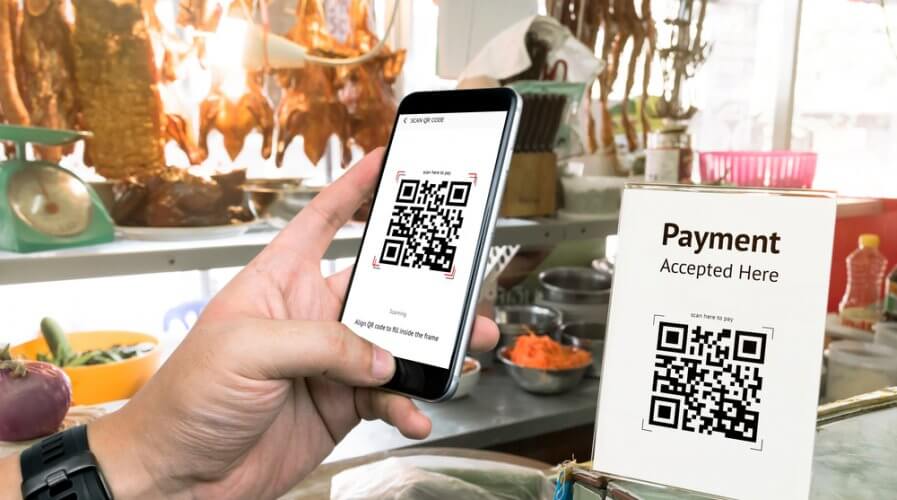
Is Indonesia the next e-wallet battleground? Source: Shutterstock
No more cash: Singapore aims small, to make it big in cashless drive
SINGAPORE is doing away with cash, replacing it with QR-code based payments instead. To accelerate its cashless initiatives, Singapore is focusing on driving its efforts towards small merchants.
Singapore’s focus on small merchants makes sense. Small and medium enterprises (SMEs) make up 99 percent of the businesses in Singapore. However, cash payments make up nearly 60 percent of transactions.
Especially amongst street vendors, food stalls, hawkers and market vendors, there is a limited acceptance of electronic payments.
Often, small vendors find it costly to implement POS terminals, which is a huge investment for SMEs. To encourage cashless alternatives, the Singapore government instead opts to work with payment service providers to enable QR-based payments.
If this sounds familiar, it’s because that’s the preferred payment method in China. AliPay and WeChatPay have successfully penetrated the market with QR-based payment. In China, most small vendors display QR-codes as a form of accepting cashless payments.
This approach is ideal for SMEs, as it eliminates any hefty costs that are commonly associated with POS terminals. Instead, merchants can either display a printed QR-code, or accept payments from a merchant app on their mobiles.
What other countries can learn from Singapore is its approach to target small vendors. Solutions proposed must cater to the needs of a small business, to capture the largest market.
Across Asia, SMEs makes up 98 percent of enterprises; solutions would thus have to cost minimum to implement, and easy to use.
For Singapore, the government has developed a common standard for Singapore Quick Response Code (SG QR) payments. First announced in November, it is designed to work with all schemes, e-wallets, and banks.
Although Singapore has an existing system, the NETS QR which targets locals; SG QR is built to accept both domestic and international payments.
To support and facilitate payments, Singaporean banks have also updated their mobile payment apps/wallets. Instead of complex payment systems that go through banks, the Association of Banks in Singapore brings in PSP (peer-to-peer) banking service, PayNow.
P2P payments allow for direct transfer of funds using a QR code, which removes the need for the bank to act as an intermediary.
Singapore is gradually rolling out SG QR across the country throughout 2018. NETS QR will be absorbed into the new system and replaced with SG QR as well.
READ MORE
- Safer Automation: How Sophic and Firmus Succeeded in Malaysia with MDEC’s Support
- Privilege granted, not gained: Intelligent authorization for enhanced infrastructure productivity
- Low-Code produces the Proof-of-Possibilities
- New Wearables Enable Staff to Work Faster and Safer
- Experts weigh in on Oracle’s departure from adland


